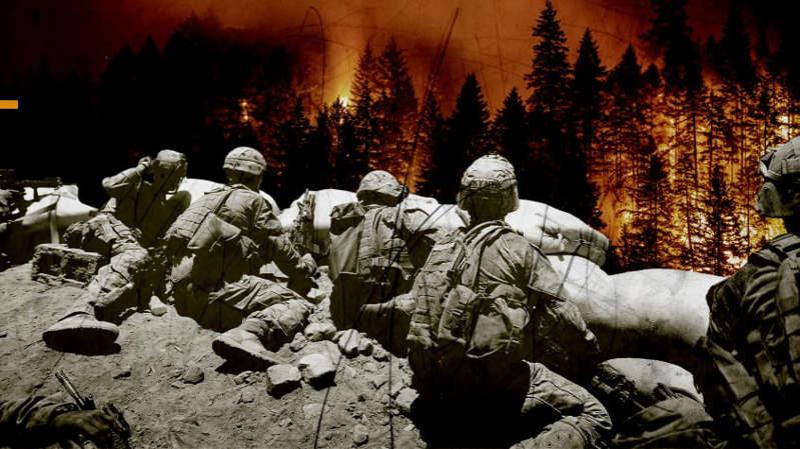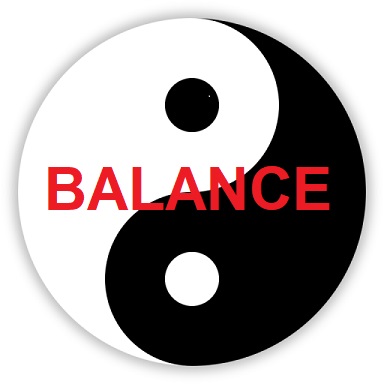The hidden costs of American imperialism
By: Ryan Cooper - The Week



The hidden costs of American imperialism
Did you notice that Tennessee suffered severe flooding a few days ago? If you were just watching TV, chances are good that it slipped your notice. Broadcast news has been throwing such a purple-faced screaming tantrum over the withdrawal from Afghanistan that they barely have had time for 21 dead Americans .

© Provided by The Week
It's a good example of how American empire comes at the expense of the welfare of the American citizenry. People are drowning and going hungry while the national elite is gripped with narcissistic panic over a imperial defeat halfway around the country.
he media frenzy over the Afghanistan withdrawal is the most intense such event I can recall in years — maybe even since the depths of the 2008 financial crisis. The absurd mask of so-called objectivity was abandoned entirely; anchors and reporters displayed open anger and disgust at Biden's actions, especially his refusal to submit to their moral hectoring and re-start the war.
This display of emotion shows they had become personally invested in the American empire, viewing it in a sense as an extension of their own identity. When the U.S. military cruised to easy victory against the Taliban in 2001 they felt great pride and satisfaction, as if they had participated personally (and some indeed had). When the ensuing occupation got bogged down in an unwinnable quagmire, showing the empire was not omnipotent — and in fact was stunningly incompetent and corrupt — they felt uncomfortable and ashamed, and stopped covering the war almost entirely. But now that the inevitable defeat has come, the humiliating failure can no longer be denied, their pride has been wounded, and they are lashing out with rage and defiance.
This imperial pride creates two problems: First, the temptation to whitewash what the empire is really doing. For all the coverage of Afghans stuck in the Kabul airport this week — which is a serious problem, to be clear — there has been barely any coverage of the horrifying atrocities committed under U.S. occupation for the last 20 years. Mainstream media virtually ignored the pedophile gangs , drug trafficking , and staggering corruption we tolerated; not to mention the killing of civilians , the bombing of hospitals , and countless other disasters. The hard truth is that the U.S. occupation was so awful, many Afghans came to see the Taliban as "the lesser evil."
Second, while the empire might give D.C. elites and some portion of the population a vicarious sense of power and importance, that "benefit" is wholly insubstantial. Weather disasters of every description are striking with greater and greater power all over the country. Tens of millions of Americans still lack health insurance. One thousand people are still dying every day from COVID-19. Losing a war is actually a lot less humiliating than the abject condition of the American welfare state.
America has been in this rut for a long time. In his final sermon in 1968, Martin Luther King, Jr. famously considered what he called the " drum major instinct ," by which he meant imperial ambition, desire for power, and so on. He argued that a "perverted" form of this instinct was why the U.S. was embroiled in the Vietnam War at the time:
"But this is why we are drifting. And we are drifting there because nations are caught up with the drum major instinct. "I must be first." "I must be supreme." "Our nation must rule the world." And I am sad to say that the nation in which we live is the supreme culprit. And I'm going to continue to say it to America, because I love this country too much to see the drift that it has taken. God didn't call America to do what she's doing in the world now. God didn't call America to engage in a senseless, unjust war as the war in Vietnam. And we are criminals in that war. We've committed more war crimes almost than any nation in the world, and I'm going to continue to say it. And we won't stop it because of our pride and our arrogance as a nation."
Sound familiar?
I think it is not a coincidence that the most decent and best-governed countries in the world tend to be medium-sized or small. Finland cannot delude itself that it is some kind of super-important place around whose decisions the world revolves (no offense meant to Finland of course, Finns should count their blessings). It's just a place where a smallish number of people live — suggesting that the most important task of government is not throwing its weight around internationally to give its citizens a vicarious sense of accomplishment and power, but simply making it a nice place to live.
Of course, America can't deny it is a gigantic and powerful nation — virtually any action the U.S. takes creates huge knock-on effects all across the planet — and that can't help but come with some responsibility. We should try to behave morally. But that must start with a great deal of humility given our track record.
King's sermon concludes with an interesting scriptural argument that the drum major instinct can be a worthy motivation "if you use it right." One can be important and significant by following the example of Jesus Christ, and serving the poorest and worst-off people in the world: "he that is greatest among you shall be your servant."
This seems like a good rule of thumb to me, and it means the empire has to go. Military occupations are about the least-reliable way to accomplish a moral objective imaginable. They are inherently violent, politically destabilizing, and devour stupendous quantities of resources. American government should worry first and foremost about its own citizenry, because that involves problems it is actually equipped to solve. Insofar as America does engage with the world, let it be with diplomacy, humanitarian aid, free coronavirus vaccines, bed nets, and AIDS drugs, and other measures that are cheap, simple, and tend to work a lot better compared to fighter jets and carrier battle groups.
.
BUZZ NOTE: Comments are subject to the Confucius group RED RULES, which may be accessed by clicking on the Confucius group avatar at the top right of this page.
Tags
Who is online
72 visitors


I like what this author has to say - because I'm sure that if America were to focus its resources and attention on its own problems, the American people would be the winners. I'm not saying it should become isolationist, because joining other nations in solving world problems like the climate and the pandemic can bring results that benefit everyone, including Americans, perhaps more beneficial results than trying to be the world's policeman.
I really can't blame Americans for not wanting to comment on this article, because Its not "in the best interests of America".